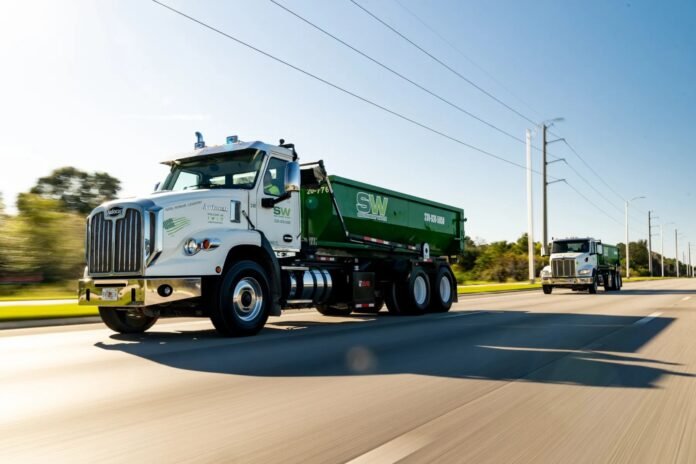Introduction
Managing waste is an essential aspect of maintaining a clean and healthy home environment. In Florida, residential waste removal services play a critical role in helping homeowners dispose of their waste responsibly and efficiently. This article will explore the various aspects of residential waste removal in Florida, including its benefits, methods, and frequently asked questions.
Understanding Residential Waste Removal
What is Residential Waste Removal?
Residential waste removal refers to the process of collecting, transporting, and disposing of waste generated by households. This includes everything from regular trash to bulk items and yard debris. Effective waste removal ensures that materials are handled properly, minimizing their impact on the environment.
Importance of Residential Waste Removal
- Health and Hygiene: Proper waste removal helps prevent the spread of diseases and keeps neighborhoods clean.
- Environmental Protection: Responsible disposal and recycling reduce pollution and conserve natural resources.
- Community Aesthetics: Regular waste removal keeps residential areas looking tidy and appealing.
Types of Residential Waste
1. General Household Waste
This category includes everyday items such as food scraps, packaging, and non-recyclable materials. Regular collection services typically handle this type of waste.
2. Recyclable Materials
Recyclables include paper, plastic, glass, and metal. These materials can be processed and reused, reducing the amount of waste sent to landfills.
3. Yard Waste
Yard waste encompasses grass clippings, branches, leaves, and other organic debris. Many communities offer specific collection services for yard waste.
4. Bulk Items
Large items such as furniture, appliances, and mattresses fall into this category. Disposal often requires special handling, and many waste removal services offer bulk pickup options.
Methods of Residential Waste Removal
1. Curbside Collection
Curbside collection is the most common method for residential waste removal. Homeowners place their waste in designated bins, which are collected by waste management trucks on scheduled days.
Advantages:
- Convenient for homeowners.
- Regular collection schedules.
2. Drop-off Centers
Some areas have drop-off centers where residents can take their waste and recyclables. This method is particularly useful for bulk items or hazardous waste.
Benefits:
- Flexibility for homeowners.
- Safe disposal of hazardous materials.
3. Dumpster Rentals
For larger cleanouts, renovations, or landscaping projects, homeowners can rent dumpsters. This option provides a dedicated space for waste until the project is completed.
Key Considerations:
- Select the appropriate dumpster size for your needs.
- Follow local regulations regarding waste disposal.
4. Recycling Programs
Many municipalities in Florida have implemented recycling programs to encourage responsible waste management. These programs often include separate bins for recyclables and education on what can be recycled.
Impact:
- Reduces landfill waste.
- Promotes environmental sustainability.
Benefits of Residential Waste Removal
1. Convenience
Residential waste removal services offer convenience, allowing homeowners to focus on their daily lives while ensuring waste is collected regularly.
2. Environmental Responsibility
Using professional waste removal services helps ensure that waste is disposed of properly, with a focus on recycling and reducing landfill use.
3. Time and Labor Savings
Hiring waste removal services saves homeowners time and effort, particularly during large cleanouts or renovations.
4. Improved Property Value
A clean and well-maintained property is more appealing to potential buyers, making effective waste removal a key factor in maintaining property value.
Choosing the Right Residential Waste Removal Service in Florida
1. Research Local Providers
Look for waste removal companies in your area that have a good reputation and positive reviews. Check their services, pricing, and commitment to eco-friendly practices.
2. Evaluate Service Options
Different companies offer various services, from regular curbside pickup to specialized bulk item removal. Choose a provider that meets your specific needs.
3. Consider Sustainability Practices
Opt for waste removal services that prioritize recycling and environmentally friendly disposal methods. This helps reduce your overall environmental footprint.
4. Get Quotes
Request quotes from multiple providers to compare pricing and services. This ensures you find a service that fits your budget and requirements.
Frequently Asked Questions (FAQs)
What types of waste can I put out for curbside collection?
Most curbside collection services accept household waste, recyclables, and yard waste. Check with your local provider for specific guidelines.
How often is residential waste collected in Florida?
Collection frequency varies by municipality, but most areas have weekly or bi-weekly pickup schedules.
Can I recycle plastic bags through curbside collection?
Plastic bags are typically not accepted in curbside recycling. Instead, check for local drop-off locations that accept plastic bags.
What should I do with hazardous waste?
Hazardous waste, such as batteries and chemicals, should be taken to designated drop-off centers or scheduled collection events in your area.
How can I find a reliable waste removal service?
Research local companies, read reviews, and ask for recommendations from friends or neighbors. Look for providers that prioritize customer service and eco-friendly practices.
Conclusion
Effective residential waste removal in Florida is essential for maintaining clean, healthy communities. By understanding the various types of waste, methods of removal, and the benefits of professional services, homeowners can make informed decisions about their waste management needs. Choosing the right waste removal service not only contributes to environmental sustainability but also enhances the quality of life for residents.
